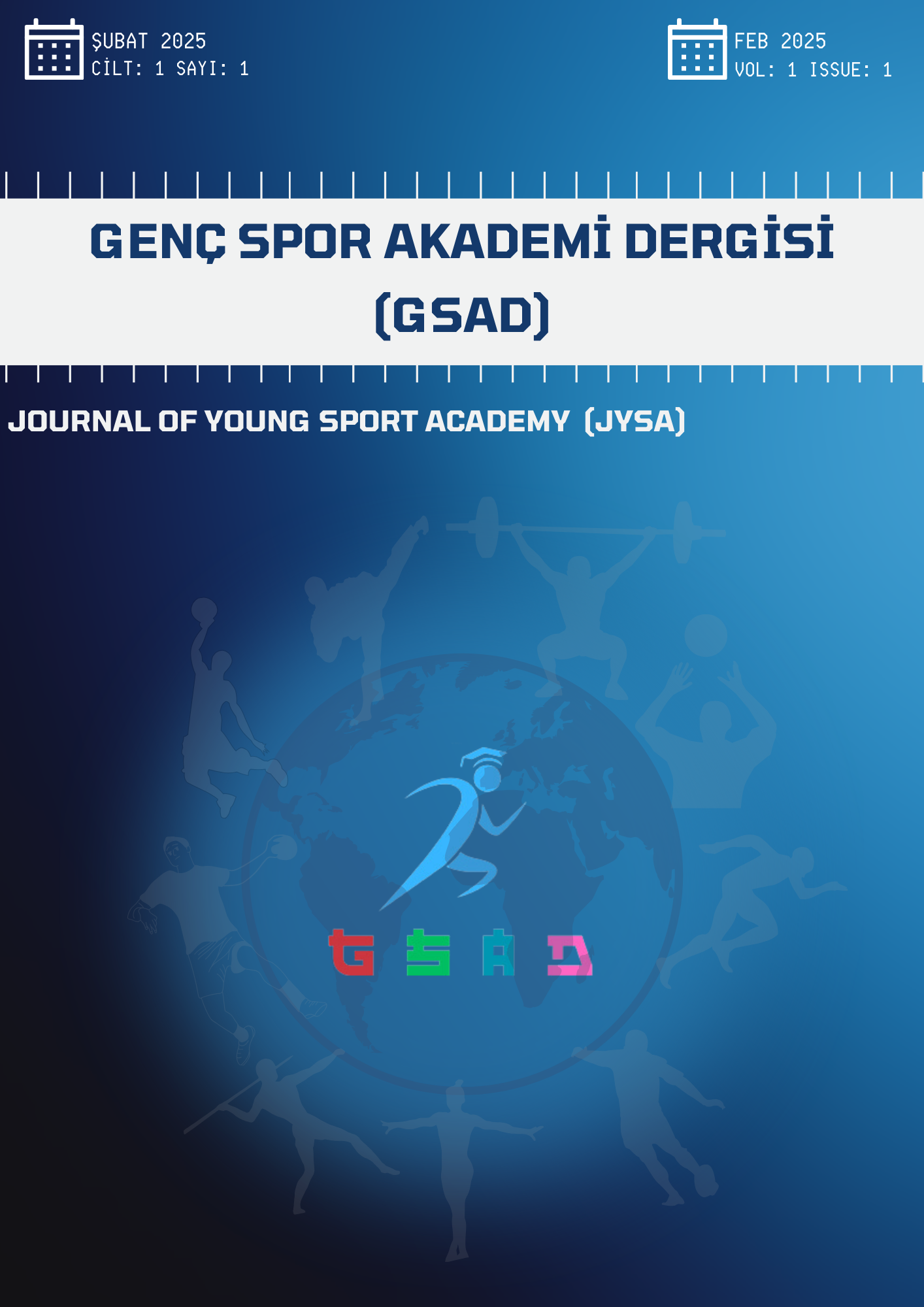Special Talent Exams in Faculties of Sports Sciences: Academic Perspectives
DOI:
https://doi.org/10.5281/zenodo.14788752Keywords:
Special talent exam, Faculties of Sports Sciences, Academy of Physical Education and SportsAbstract
In Turkey, the establishment of Physical Education and Sports Teacher Training Schools and the efforts to train educators have a long-standing history, forming the foundation of today’s Academy of Physical Education and Sports (BESYO) and Faculties of Sports Sciences (SBF). Over time, the exams used to select students for these institutions have evolved significantly. However, the current special talent exams are widely criticized. In response to these criticisms, efforts are underway to develop a unified central exam system. This study aims to explore the perspectives of academics in Faculties of Sports Sciences regarding the special talent exams. Designed as a phenomenological study, the research employs qualitative methods, with data collected through interviews. The study group, selected using the typical case sampling technique, consists of academics from the sports sciences faculties of four different universities. Semi-structured interviews were conducted via Zoom, and the data were analyzed using content analysis. The findings were categorized into two main themes: the current exam system and the proposed central exam system. Sub-themes included limitations and benefits, further divided into evaluations from the perspectives of students and faculties. The results indicate that the current system, with its varying exam practices across universities, creates unfairness and inequality of opportunity. Specifically, granting only one exam attempt and the differing difficulty levels of motor skill tests negatively impact student performance.
References
Altın, M., Bozgüney, R., Üzgü, M. A., & Denktaş, M. (2022). Beden Eğitimi ve Spor Yüksekokulları (BESYO) ve Spor Bilimleri Fakülteleri (SBF) Özel Yetenek Sınavlarının İncelenmesi ve Değerlendirilmesi. Gençlik Araştırmaları Dergisi, 10(28), 131-154.
Arun, A.C. (1990). Türkiye’de Cumhuriyet devrinde beden eğitimi öğretmeni yetiştirme çalışmaları ve aşamaları. Beden Eğitimi ve Spor Araştırmaları Dergisi, 1 (1), 9-13.
Erdoğdu, Y. (1998). Türkiye’de Spor Eğitiminin İncelenmesi ve Program Geliştirme Çalışması. (Yayınlanmamış Yüksek Lisans Tezi). Kocaeli Üniversitesi Sağlık Bilimleri Enstitüsü. Kocaeli.
Ergin, O. (1977). Türkiye Maarif Tarihi. Eser Matbaası.
Güven, Ö. (1996). Türkiye’de Cumhuriyet Döneminde Beden Eğitimi ve Spor Öğretmeni Yetiştiren Okulların Eğitimini Hazırlayıcı Çalışmalar. Gazi Beden Eğitimi ve Spor Bilimleri Dergisi, 1(2), 70-82.
Kahraman, A. (1995). Osmanlı Devleti’nde Spor. T.C. Kültür Bakanlığı Yayınları.
Kamuk, Y. (2019). Değişen Üniversite Sınav Sistemi Işığında Spor Bilimleri Fakültesi Özel Yetenek Sınavlarının Değerlendirilmesi. SPORMETRE Beden Eğitimi ve Spor Bilimleri Dergisi, 17(3), 222-236.
Limberg, L. (2008). Phenomenography. In L. Given (Ed.), The SAGE encyclopedia of qualitative research methods. (pp. 612-615). Thousand Oaks, CA: Sage. 611-614.
Marshall, C. and Rossman, G. B. (2006). Designing qualitative research, Sage,London.
Okan, K. (1975). Türk Spor Tarihi. Mektupla Öğretim Yayını.
Ölçme, Seçme ve Yerleştirme Merkezi [ÖSYM]. (2022). Hakkında. https://www.osym.gov.tr/TR,8789/hakkinda.html
Ölçme, Seçme ve Yerleştirme Merkezi [ÖSYM]. (2021). YKS kılavuzu. Erişim adresi: https://www.osym.gov.tr/ TR,21247/2021-yuksekogretim-kurumlari-sinavi-yks-yuksekogretimprogramlari-ve-kontenjanlari-kilavuzu.html . (25.03.2022)
Topuz, H. (1975). Konuklar Geçiyor. Çağdaş Yayınları.
Yıldırım, A., & Şimşek, H.(2018). Sosyal bilimlerde nitel araştırma yöntemleri. Ankara: Seçkin Yayıncılık.
Downloads
Published
How to Cite
Issue
Section
License
Copyright (c) 2025 Kemal

This work is licensed under a Creative Commons Attribution-NonCommercial 4.0 International License.


